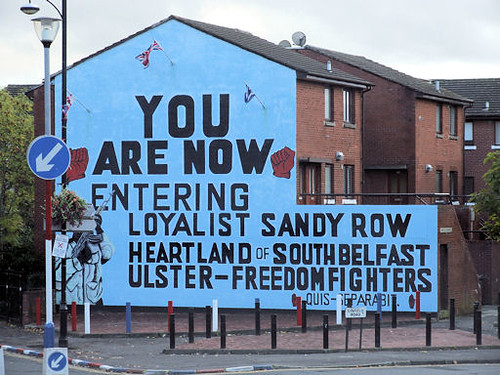Earlier this month, Northern Ireland saw 12 days of sporadic violence, with crowds of predominantly young people rioting in towns and cities almost nightly since the end of March. Armed with bricks, bars, fireworks and petrol bombs, people as young as 12 have clashed in Londonderry, Belfast, Carrickfergus, Ballymena and Newtownabbey. Videos of a bus being set alight appeared across social media on the afternoon of April 9th. Police officers and press were attacked with Molotov cocktails, fireworks and bricks by the rioters in Belfast. A water cannon was soon deployed on the crowd who refused to disperse. The Northern Ireland executive met the following morning to be briefed on the ongoing unrest.
A statement from Superintendent Davy Becky via Northern Ireland’s Police Force website read: “the senseless disorder we saw unfold in Belfast has achieved nothing but leave people petrified in their homes such reckless criminal activity has only served to harm a local community by those who deliberately chose to engage in such disorder”. He went on to make a direct appeal to community leaders to try manage tensions among people in the area.
On the evening of April 19th more violence erupted in the area as the Loyalist Communities Council held a small demonstration outside Irish government offices and vowed to resume protest action against post-Brexit trading arrangements that have created new barriers and bureaucracy on trade between Northern Ireland and the rest of the UK. Indeed, Brexit’s Northern Ireland Protocol appears to be at the heart of the conflict as loyalists express their anger at trading arrangements that have created economic barriers between the country and the rest of the UK across the Irish Sea.
For many living in the border region, these scenes are reminiscent of the 30 years of ethno-nationalist conflict in Ireland commonly referred to as “The Troubles”. Two men have been arrested in connection with the attempted murder of a police officer after a car bomb was found in a police car in Derry. Bricks and firebombs have been thrown from either side of Belfast’s “peace wall”. The wall stands 3 metres high and divides the predominantly catholic Ireland and predominantly Protestant Northern Ireland. These recent events illustrate how Brexit tensions have threatened to undo years of reconciliation since the Good Friday agreement brought an end to the Troubles in 1998.
When the Brexit referendum was called in 2016 and it was announced that the UK would withdraw from the European Union, many questions were raised over the impact this would have on Northern Ireland. The UK and Ireland joined the European Economic Community at the same time in 1973, and their current economic and political relationship largely depended on their membership of the EU. Questions mainly centred around Northern Ireland’s peace process, how to operate the border between Northern Ireland and the Republic of Ireland for people and goods, and preserving co-operation between the North and the Republic, and between the Republic and the UK. Both the UK and Ireland’s place in the EU meant that goods could freely move across the border under the EU’s Single Market for trade. Threats to this arrangement and the word “hard border” cast a long shadow over Brexit talks. A hard border in Ireland would entail a limited number of authorised (and physically controlled) crossing points. Drivers of vehicles crossing are required to declare goods in carriage, commercial carriers must produce bills of lading and evidence that the goods comply with the minimum standards of the territory being entered. Tariffs (in the form of customs duty) may be payable.
Former Prime Minister, Theresa May, promised there would be “no hard border” between the UK and Ireland. The UK government continued to renew these promises as Brexit talks continue, however on the 2nd of October 2020, UK Prime Minister Boris Johnson presented a potential solution in which Northern Ireland stay aligned with the EU on product standards but remain in the UK customs territory. This would necessitate product checks between Great Britain and Northern Ireland, but no customs check for goods expected to stay within the UK. Many Unionists have claimed this damages trade and threatens Northern Ireland’s place in the UK.
Both Downing Street and the White House expressed concern over the violence of the past month. Jen Psaki, the White House press secretary, said in a statement: “We are concerned by the violence in Northern Ireland and we join the British, Irish and Northern Irish leaders in their calls for calm.” She added: “We welcome the provisions in both the EU-UK trade co-operation agreement and the Northern Ireland protocol, which helped protect the gains of the Belfast/Good Friday agreement.”
Image Credit: Princess Purple

